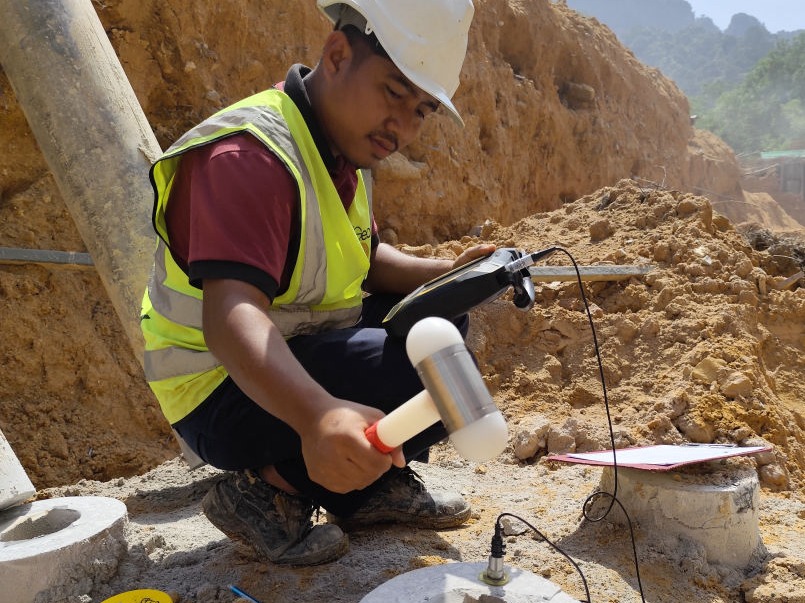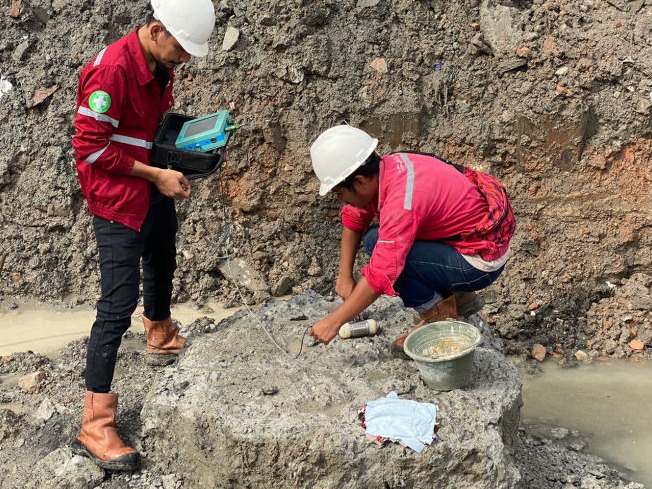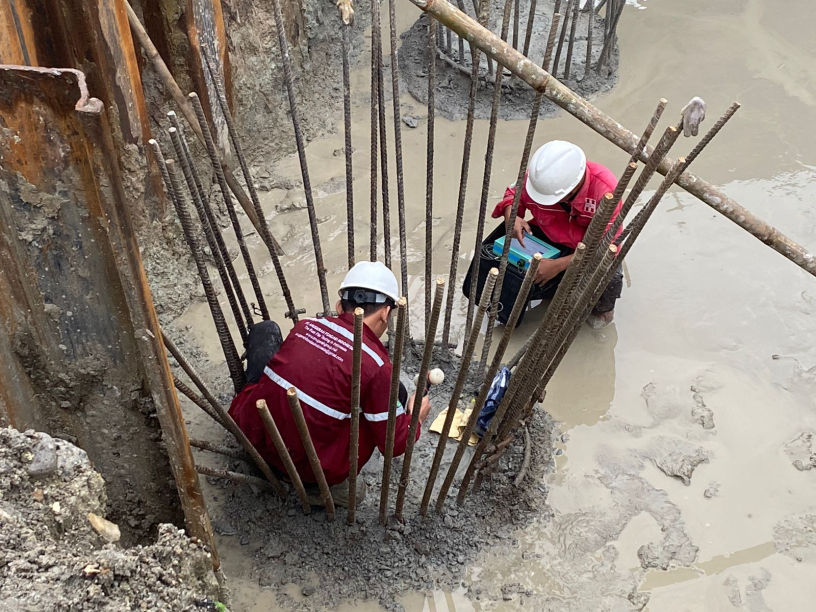


Pile Test Services



The Low Strain Pile Integrity Test (LSPIT) evaluates pile quality by applying a small impact to the pile head and analyzing the reflected stress waves. This non-destructive method detects defects and discontinuities within the pile, offering quick results with minimal equipment, though it may not identify all types of defects.
| Aspect | Description |
|---|---|
| Test Name | Low Strain Pile Integrity Test |
| Test Purpose | To detect defects, discontinuities, or changes in cross-sectional area along the length of a pile. |
| Test Standard | ASTM D5882-16 |
| Test Procedure | A small impact is applied to the pile head, and the reflected stress waves are analyzed to identify any irregularities. |
| Load Application | Load is applied using a handheld hammer or similar low-energy impact device. |
| Test Measurement | The time and shape of the reflected wave are analyzed to identify defects within the pile. |
| Key Parameters | Time vs. amplitude, pile continuity, and integrity. |
| Test Duration | Typically completed within minutes per pile, depending on the length and complexity. |
| Load Application | Commonly used in foundation design verification for buildings, bridges, and other structures. |
| Test Applications | Ideal for quality control during construction, especially for precast concrete piles. |
| Test Advantages | Non-destructive, quick, and easy to perform with minimal equipment. |
| Test Limitations | May not detect small, deep defects or long piles, and interpretation requires expertise. |
AI Website Generator